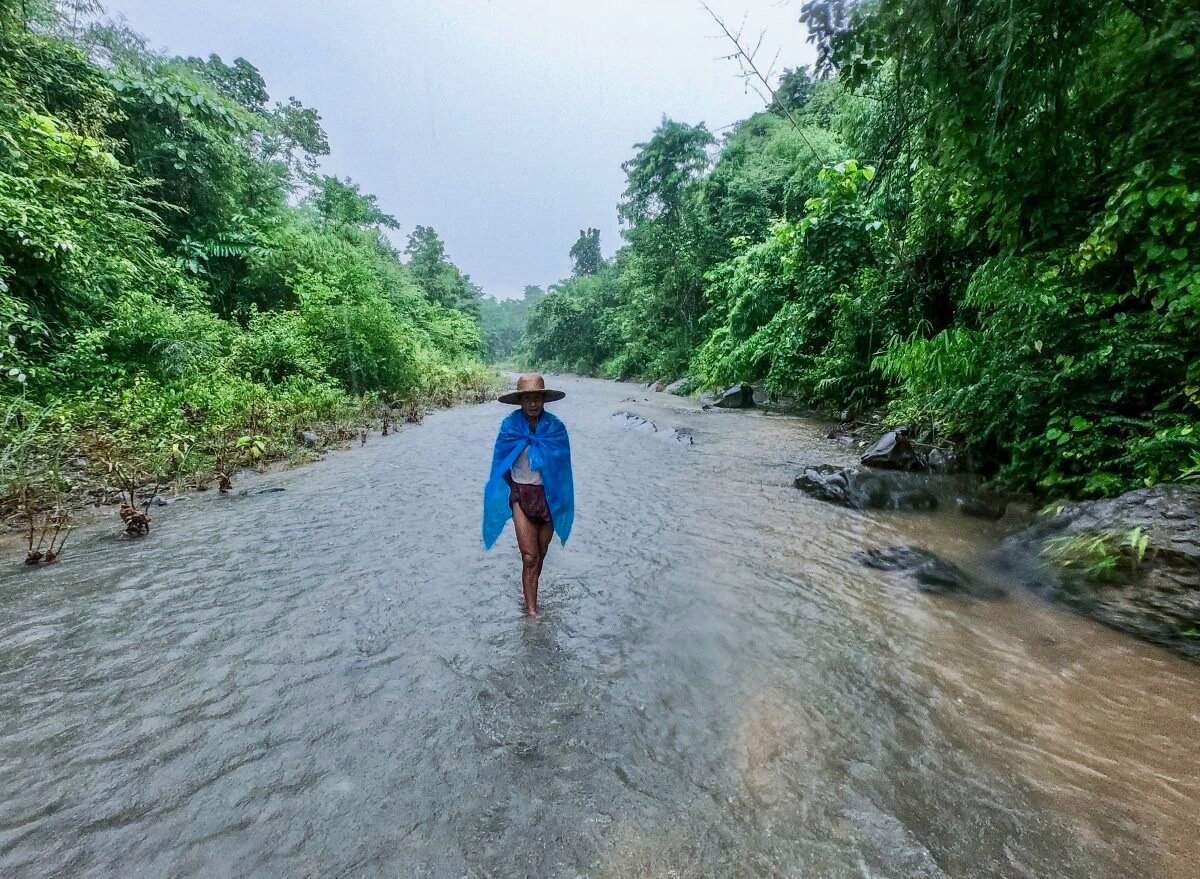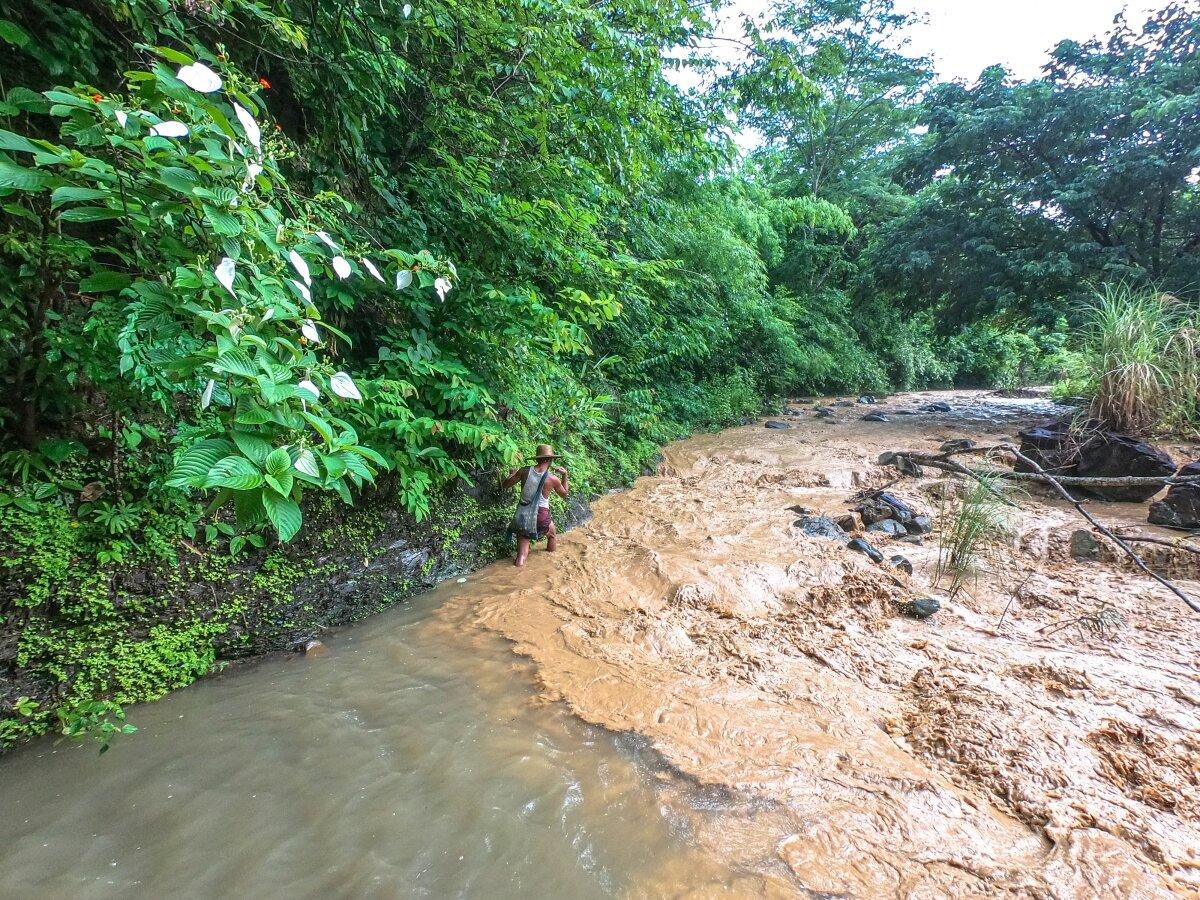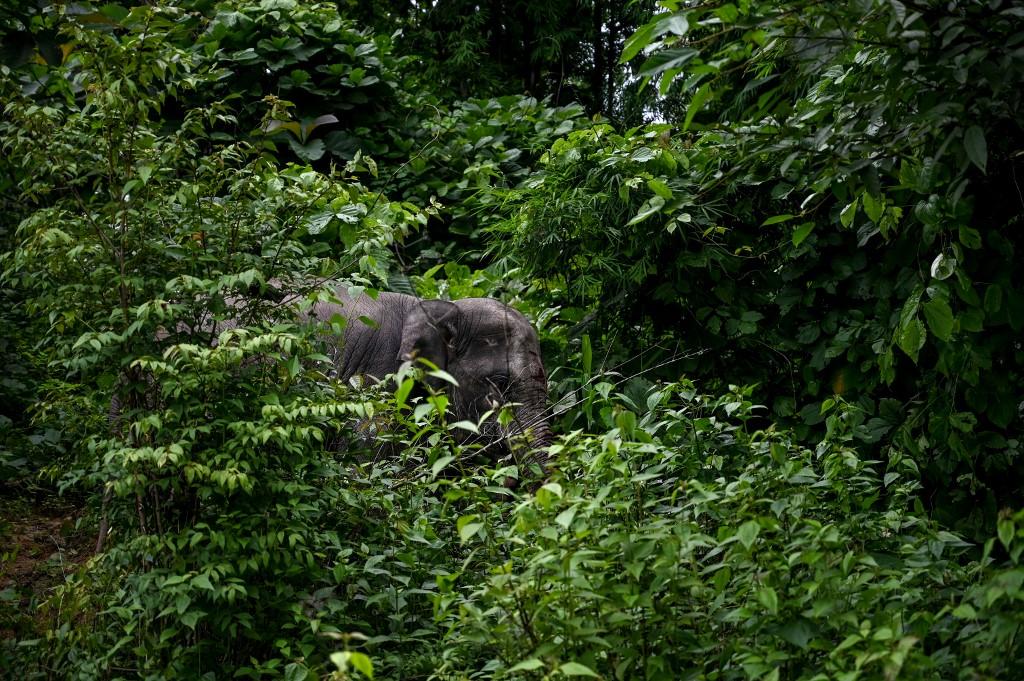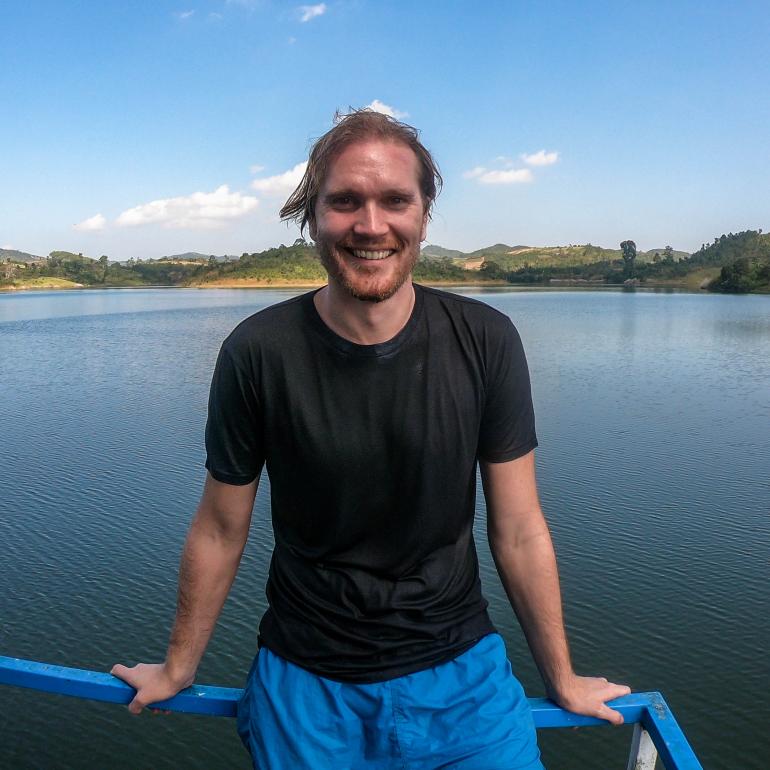
One of my oldest friends in Yangon had been trying to convince me to visit Kyangin in Ayeyarwady region for over a year. He knew I loved off-grid adventure and he’d been told of a huge waterfall buried deep within the mountainous jungle that separates Ayeyarwady region and Rakhine state.
On our way to the starting point we picked up our guide—a local farmer decked out in flip flops, a bamboo hat, and teeth stained blood-red from chewing on kwun-ya (betel nut). We were told that it would be a three-hour-long hike to the waterfall and back.
Seven hours later, we arrived at the waterfall (not worth it) completely exhausted. We’d scaled mountains, fought our way through thick bamboo forest, waded across treacherous rivers, had been lashed to the bone from torrential monsoon rains and eaten alive by mosquitos and flies.
We were in big trouble. Half our group were so tired they could barely stand, and both of my shoes had completely fallen apart along the way, leaving me barefooted. There were no villages for miles, no road where we could flag someone down for help and we couldn’t go back the way we came. Crossing those rivers in the dark would be beyond dangerous; we had to find another way.
Our guide claimed he knew a shortcut. We were dubious to say the least. Not only was his grasp of time flimsy in the extreme, we now realised that the bottle which he’d been swigging from for the duration of the trek wasn’t water: it was rice wine. He was totally hammered. Still, we had no choice.
After about two hours we came across a small bamboo hut with a thatched roof and six gnarled hunters huddled inside. They gave us fish, rice, tea and cheroots to smoke. We all started to feel a bit more human. Then, just as we were leaving, the hunters gave us an ominous warning: the jungle we were walking through was home to herds of wild elephants, they were very dangerous and we should proceed with extreme caution.
Another arduous hour-long slog through the wet and muddy wilderness later, and we decided to take a break in order to allow everyone to catch their breath. It was then that we heard the elephants. Just one at first, a single strained trumpet in the distance. Fear started to creep in. As we plodded on, we heard more and more elephants crying out in the jungle, and the Burmese in our group started to pick up rocks. I did the same.
We found ourselves on a steep hill. The three villagers were out in front, my four friends bringing up the rear with me sandwiched in the middle. Suddenly, we heard the sound of branches and bamboo snapping and there was a deafening roar to our right. Everyone turned and ran into the undergrowth. I found a felled tree and dived behind it. One of the villagers shouted to us “turn off your lights!” I fumbled around and with great difficulty managed to find the off switch on my torch.
The elephant stomped around by the side of the road, bellowing into the darkness. Then, it stopped, and let out a low, sustained, guttural growl. My blood turned to mercury. It sounded indistinguishable from another wild animal native to Myanmar—a tiger—and, just for a moment, in my terrified state I thought that was exactly what it was.
As the elephant roared into the pitch black, thoughts raced through my mind: first and foremost, that not only had our day gone completely off the rails, but we were also in real life-threatening danger now. Hundreds of people are trampled to death by elephants every year and we seemed like excellent candidates to swell those grim statistics.
The elephant was clearly not happy about us blundering through its territory in the dead of night. I realised I was still clutching at my rock, but what good would it actually do me? Throwing a rock at an angry elephant seemed like a very bad idea. But then what? Run? Scramble up the nearest tree? Or my preferred option: continue to cower behind the log? I began to think that there were no good choices and that if the elephant made up its mind to kill us there was probably very little I or anyone else could do about it.
One of the villagers emerged from the trees and shouted “Go! Now!” I watched as my friend Leo bolted past me and I knew in that instant that it was fight or flight time and I had insufficient confidence in the rock for fight. I leapt from behind the tree and frantically scurried down the rocky slope as fast as my scraped and bruised feet would allow.
It’s hard to put into words just how terrifying that manic descent was. The elephant was still on the other side of the road, shrouded by the thickets of bamboo, braying and crashing around in the darkness.
We all managed to make it to the bottom of the hill, and for the next two hours (it was 1am when we finally trudged into the village), we hardly breathed a word. We were just grateful to be alive.



